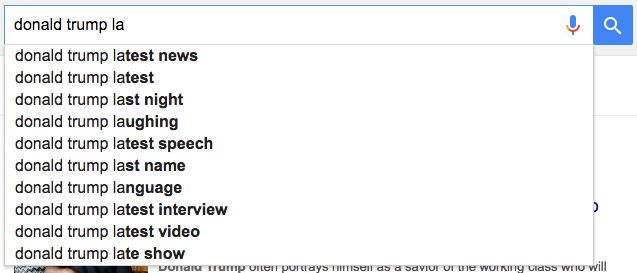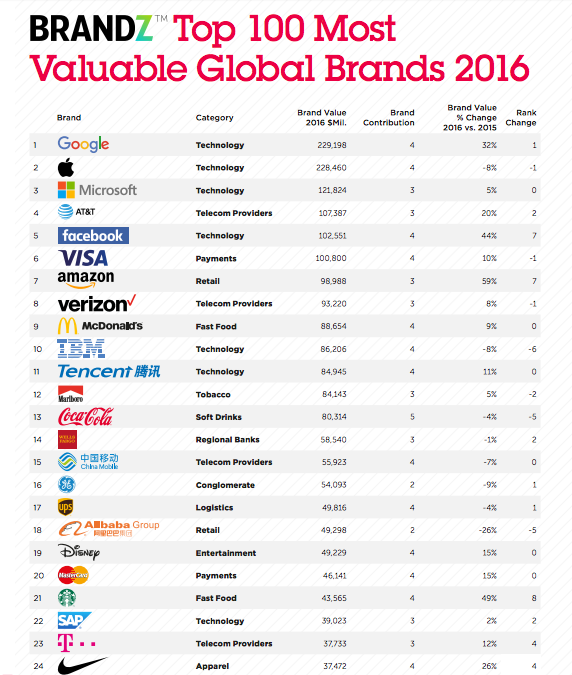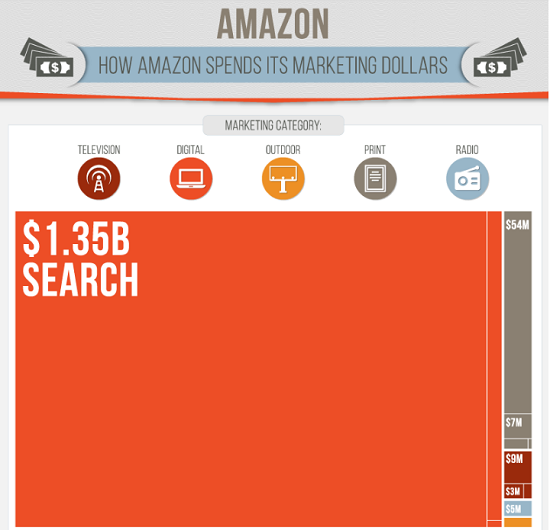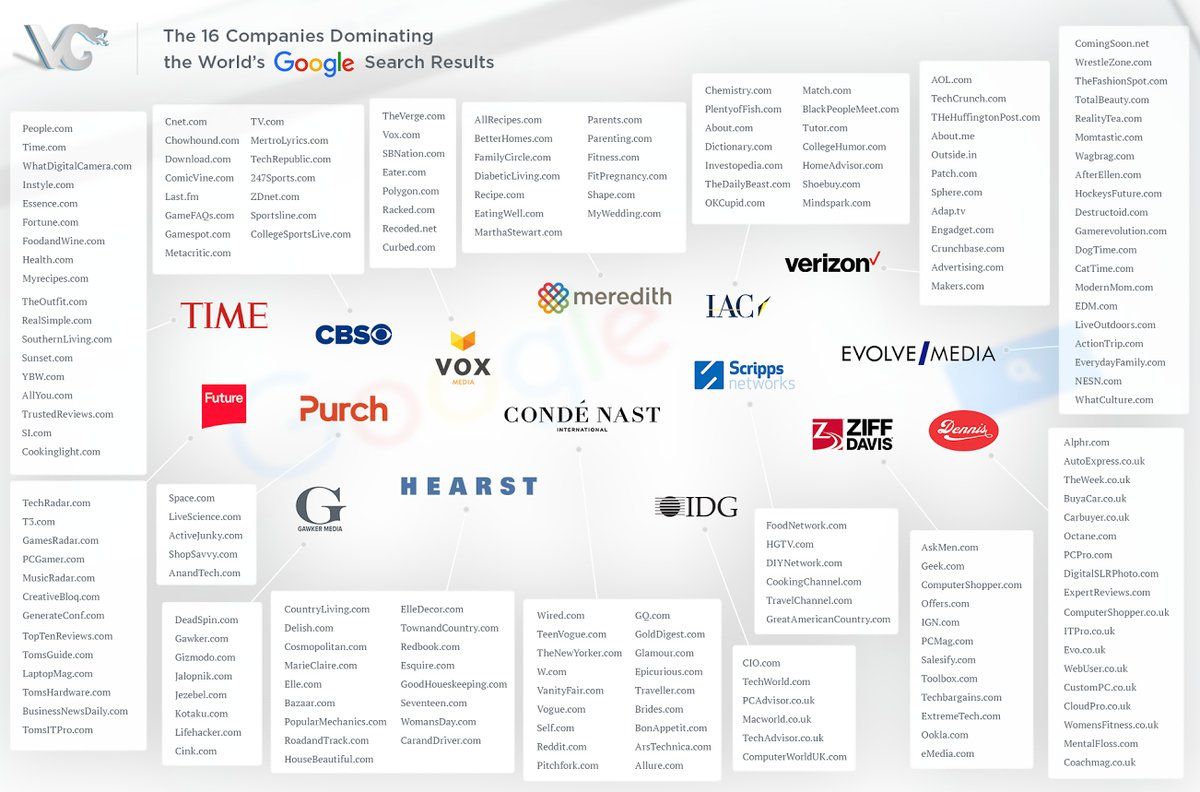It’s Friday, so welcome to our weekly round up of search marketing and related news.
This week we have the 16 companies dominating Google, stats on retailers’ search budgets, and a look at accusations around Google and searches for Hillary Clinton.
Is Google manipulating searches for Hillary Clinton? Er,no…
There’s been talk of Google manipulating autocomplete suggestions for searches on Hillary Clinton. A video from SourceFed claims that searches around Clinton are being manipulated as they don’t return the suggestions they would expect to find.
Specifically, searches such as “Hillary Clinton cri-” did not suggest “Hillary Clinton criminal charges” and “Hillary Clinton in-” did not return “Hillary Clinton indictment.”
SEO and reputation management expert Rhea Drysdale does an excellent job of debunking the theory in a post on Medium.
Essentially SoureFed failed to compare similar searches for Donald Trump, which fail to suggest phrases like “Donald Trump lawsuit”.
In a nutshell, if Google is manipulating searches for Clinton, it’s doing the same for Trump. There’s another theory too – the popularity of the SourceFed video has led to thousands trying out these searches for themselves, thus potentially manipulating these results.
Google becomes the world’s most powerful brand
Apple’s value has dropped 8% to $228 billion in the past year, while Google’s has risen 32% to reach $229 billion. So Google takes top spot in Millward Brown Digital’s annual report.
Amazon’s search spending
Fractl has analyzed the marketing spend of some of the biggest retailers, and search gets the lion’s share of Amazon’s budget.
During the period studied, the ecommerce giant spent $8 million on TV and radio, $54 million on print and $1.35 billion on search.
For more stats, see Mike O’Brien’s piece on the research.
In search, do the the rich just get richer?
Earlier this week, Chris Lake covered an excellent Glen Allsop study into how 16 companies are dominating Google’s results.
In this case, the rich are major publishing groups. The way they are getting richer is by cross-linking to existing and new websites, from footers and body copy, which are “constantly changing”
And these are the big 16:




No comments:
Post a Comment